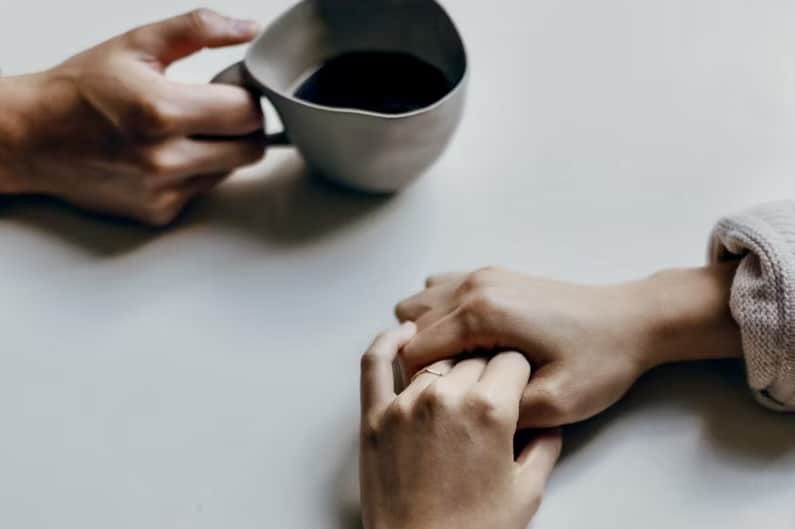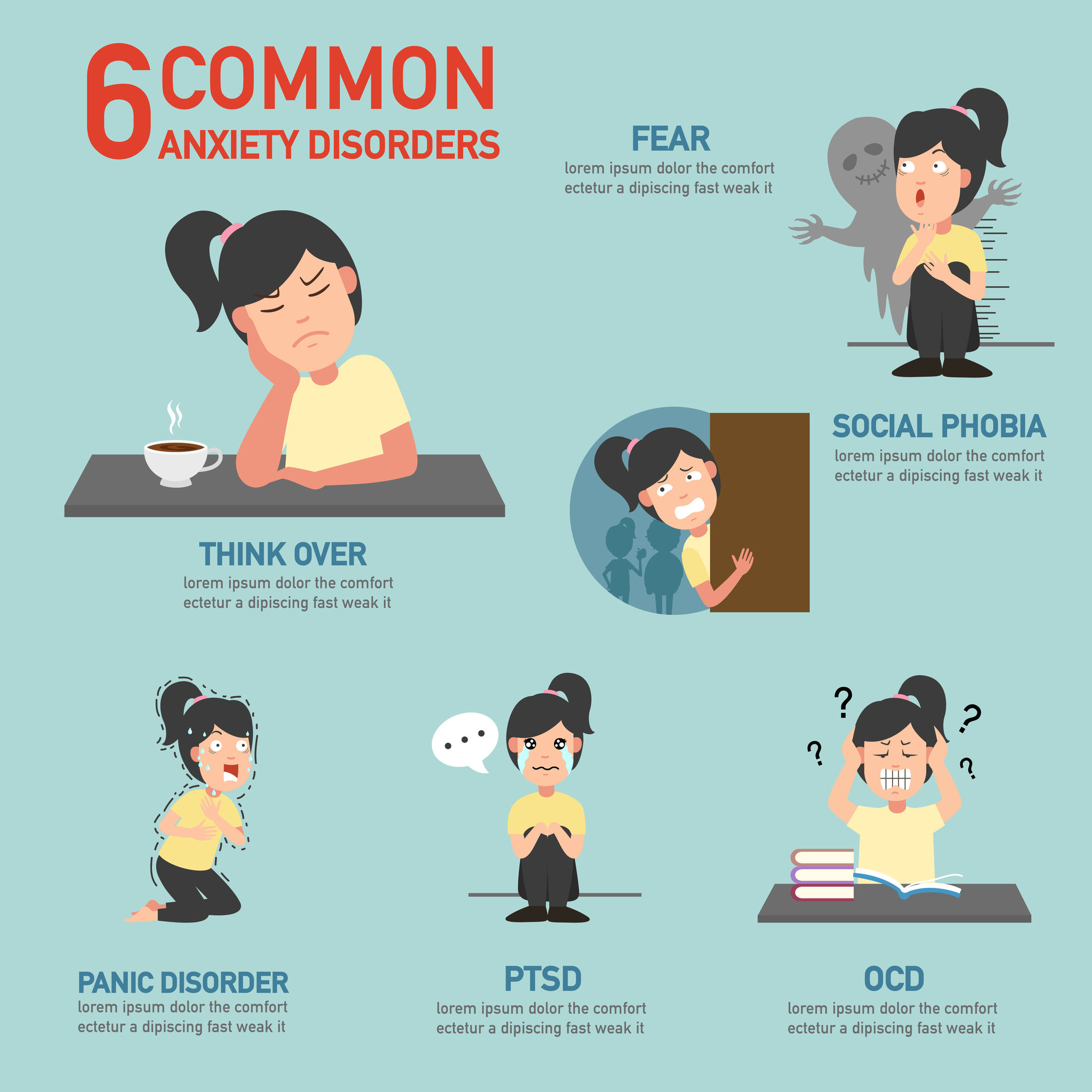Supportive and professional therapy for anxiety designed for you
Supportive and professional therapy for anxiety designed for you
Blog Article
Exploring Different Strategies in Therapy for Anxiousness Condition for Long-term Modification
When tackling anxiety conditions, it's necessary to check out a range of therapy approaches. Each approach offers distinct insights and devices to assist you handle your signs and symptoms properly. You may locate that incorporating strategies can generate the most effective results. Nevertheless, understanding the nuances of these methods is key to promoting enduring change. Suppose the best combination could launch a new degree of psychological health for you?
Recognizing Anxiousness Conditions: A Short Overview
Anxiety conditions, which impact countless individuals worldwide, can greatly affect day-to-day live. You might experience frustrating sensations of fear or stress that appear irrepressible. These sensations can result in physical signs like a racing heart, sweating, and even wooziness. Usual types of anxiousness problems include generalized anxiousness condition, panic attack, and social anxiety condition. Each has unique signs, however they all share a propensity to disrupt your regular and relationships.Understanding the origin of your anxiety is vital. It might stem from genes, mind chemistry, or life experiences. Identifying your triggers can help you handle your actions better. It is very important to bear in mind that you're not alone in this battle. Many individuals face similar obstacles, and seeking help is a solid action towards sensation better. By discovering anxiousness conditions, you're already on the course to understanding and handling your condition better.
Cognitive-Behavioral Therapy: Testing Negative Thought Patterns
In Cognitive-Behavioral Therapy, you'll begin by determining the negative thought sets off that contribute to your anxiety. As soon as you acknowledge these ideas, you'll service replacing them with more positive alternatives. Together, you'll construct effective coping strategies to aid manage your anxiousness in everyday circumstances.
Recognizing Unfavorable Idea Triggers

Identifying the certain triggers behind your adverse ideas can be essential in handling anxiousness when you encounter moments of distress. Beginning by taking notice of circumstances that provoke feelings of fear or anxiety. Is it a jampacked space, an upcoming due date, or a discussion with specific people? Take down these circumstances in a journal. This will certainly assist you identify patterns in your thinking. Notification physical sensations that accompany your negative ideas, like a racing heart or rigidity in your chest. By determining these triggers, you get insight right into what's fueling your anxiety. Recognizing these links is the primary step in challenging those ideas and eventually reclaiming control over your emotional responses.
Replacing Thoughts With Positives
Testing negative idea patterns is a crucial action in changing your mindset and minimizing anxiousness. You may frequently find on your own caught in cycles of insecurity or disastrous thinking. Rather than letting these thoughts dictate your sensations, method replacing them with practical choices or positive affirmations. For circumstances, when you believe, "I can't handle this," change it to, "I can take care of obstacles one action each time." This basic adjustment can significantly affect your mood. Consistently identifying and countering these unfavorable ideas aids develop a healthier interior discussion. Bear in mind, it takes some time and initiative, but continually practicing this method can result in lasting modification, encouraging you to face anxiousness with restored self-confidence and resilience.
Building Coping Methods With Each Other
Changing negative ideas is just the start of taking care of anxiousness properly. To create lasting change, you need to build coping techniques that equip you. Cognitive-Behavioral Therapy (CBT) assists you determine and test those purposeless idea patterns. Together, you and your counselor can discover exactly how these ideas impact your feelings and behaviors.Start by establishing useful methods, like journaling or mindfulness workouts, that allow you to face anxiousness head-on. When you encounter your concerns progressively, you'll learn to react in different ways.

Mindfulness and Acceptance-Based Approaches: Cultivating Present-Moment Awareness
As you navigate the complexities of anxiousness, integrating mindfulness and acceptance-based strategies can significantly enhance your ability to grow present-moment understanding. By concentrating on the below and now, you'll discover that you can observe your ideas and sensations without judgment (Counseling services for anxiety). This technique helps you recognize your stress and anxiety without feeling overwhelmed by it.Engaging in mindfulness exercises, such as deep breathing, body scans, or led meditations, allows you to ground on your own in your existing experience. Acceptance-based techniques urge you to welcome your emotions as opposed to combat versus them. They shed their power over you.Incorporating these techniques right into your everyday regimen can change how you react to stress and anxiety when you approve your sensations. You'll create durability and discover to browse demanding situations with greater simplicity. Inevitably, growing present-moment awareness lays the foundation for enduring change, equipping you to lead a more satisfying life
Direct Exposure Treatment: Facing Concerns Gradually
Exposure therapy aids you confront your concerns in a steady method, making it less frustrating. You'll discover methods to face anxiety-provoking circumstances detailed, while also building coping techniques to manage your responses. This technique empowers you to take control and lower anxiousness with time.
Progressive Exposure Techniques

When dealing with anxiousness, slowly confronting your concerns can be a powerful method to restore control. This strategy, referred to as steady exposure, involves gradually subjecting yourself to the scenarios or objects that activate your anxiousness. Start with less daunting scenarios and slowly work your method as much as more challenging ones. If you're terrified of public talking, you could start by talking in front of a mirror, after that progress to sharing thoughts with a buddy, and ultimately resolve a small group. Each action assists desensitize you to the fear, building your confidence with time. Remember, it's essential to rate yourself and commemorate small triumphes as you move with this procedure, enhancing your capability to take care of anxiousness effectively.
Structure Coping Techniques
Structure effective coping approaches is important for taking care of anxiety, specifically as you challenge your fears slowly - Counseling services for anxiety. One effective approach is direct exposure treatment, where you start by facing your worries in a controlled manner. Begin with less intimidating scenarios and gradually function your means approximately even more difficult situations. This progressive direct exposure aids desensitize you to anxiousness triggers, making them much less overwhelming.Incorporate leisure strategies, such as deep breathing or mindfulness, to relax your mind throughout direct exposure. Track your development, commemorating little success in the process to enhance your confidence. Keep in mind, it's alright to take your time; the objective isn't excellence but constant improvement. By constructing these methods, you'll empower yourself to navigate stress and anxiety and welcome life extra totally
Psychodynamic Therapy: Discovering Origin Reasons of Anxiousness
Psychodynamic therapy discovers the subconscious mind, revealing the source of your anxiety. By analyzing your thoughts, sensations, and past experiences, this approach aids you discover underlying disputes and unresolved concerns that may add to your current stress and anxiety. You'll function with a specialist to investigate childhood experiences, partnerships, and emotional patterns that form your actions today.As you gain understanding into these much deeper layers of your psyche, you'll begin to recognize exactly how previous occasions affect your present actions. This understanding can result in catharsis, permitting you to refine feelings you may have suppressed.Through the therapeutic relationship, you can also identify defense mechanisms that may have established over time, using a clearer course to change. Eventually, psychodynamic therapy furnishes you with the tools to address your anxiousness at its core, advertising long lasting transformation in your psychological health.
Alternative and integrative Strategies: Incorporating Techniques for Greater Efficiency
Integrating different healing techniques can enhance your trip toward managing anxiousness better. By incorporating elements from cognitive-behavioral therapy, mindfulness techniques, and all natural approaches, you can create a tailored method that addresses your special demands. You could make use of cognitive-behavioral strategies to test adverse idea patterns while including mindfulness workouts to ground yourself in the present moment.Additionally, checking out alternative techniques such as yoga exercise or meditation can promote relaxation and lower anxiety symptoms. This mix permits you to establish higher self-awareness and resilience.Experimenting with more info these diverse methods can aid you uncover what reverberates most with you. Keep in mind, it's about finding a harmony that functions, rather than staying with a single strategy. This integrative method not only offers prompt alleviation yet likewise promotes long-term skills for managing anxiety, equipping you to reclaim control over your life.
The Duty of Support Solutions: Structure Durability With Connection
While it might seem that handling anxiousness is a solitary trip, having a strong assistance system can play an important duty in your durability. Bordering yourself with empathetic friends, household, or support teams creates a risk-free space where you can freely share your sensations and experiences. You remind on your own that you're not alone in this struggle.These relationships use encouragement and can supply useful coping strategies that have functioned for others when you link with others. It's additionally a possibility to gain point of view; buddies can aid you see circumstances in different ways, lowering feelings of isolation.Moreover, psychological support cultivates a sense of belonging, which can considerably alleviate stress and anxiety signs and symptoms. By leaning on your support group, you can develop strength and take on challenges better. Bear in mind, reaching out for help is an indication of toughness, and it can make all the distinction in your journey toward handling anxiousness.
Frequently Asked Questions
What Are the Typical Signs of Stress And Anxiety Disorders?
You might experience uneasyness, exhaustion, trouble concentrating, irritability, muscle mass tension, and rest disruptions. Physical symptoms can consist of quick heartbeat, sweating, and trembling. Acknowledging these signs early can help you seek ideal assistance and treatment.
How Much Time Does Treatment Generally Last for Stress And Anxiety Conditions?
Treatment for stress and anxiety conditions commonly lasts anywhere from a few weeks to numerous months. It really depends upon your specific requirements, development, and the strategies your therapist uses to aid you manage your anxiety efficiently.
Can Medication Be Made Use Of Along With Treatment for Stress and anxiety?
Yes, medicine can certainly be used along with treatment for stress and anxiety. Combining both strategies often boosts therapy efficiency, assisting you manage symptoms while checking out underlying problems with therapy (Counseling services for anxiety). Always consult your medical care provider for individualized recommendations
Are There Self-Help Techniques for Handling Stress And Anxiety?
Yes, there are a number of self-help strategies for managing anxiety. You can practice mindfulness, involve in regular workout, maintain a balanced diet plan, establish a routine, and use deep breathing methods to help in reducing stress and anxiety symptoms successfully.
How Do I Know if I Need Specialist Assistance for Anxiousness?

Report this page